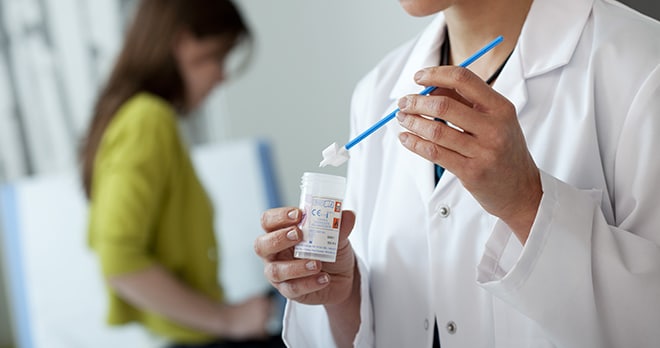Universal screening for Group B Strep: why Group B Strep Support are campaigning for change

According to the Neonatal Infection Surveillance Network, Group B Strep (GBS) bacteria is the most common cause of sepsis and meningitis in new born babies and infection rates have been rising over the last 20 years.
Many pregnant women carry GBS bacteria on the surface of their vaginas without it causing any problems to their babies. However, some babies can unfortunately become infected by GBS, with devastating consequences.
In the UK there is no universal antenatal screening programme to check whether a pregnant woman is carrying GBS. Instead, only women who have risk factors for GBS are tested and those who have a positive test result are then given antibiotics during their labour. These risk factors include a history of GBS infection in a previous pregnancy and signs of infection in the current pregnancy.
The problem with this risk-based approach though is that, according to the BPSU survey, 64% of mothers of babies who developed GBS infection did not have any risk factors and were therefore neither tested nor treated.
The argument for universal screening only gets stronger when you look at the research, starting with research undertaken at Northwick Park Hospital in London.
What studies undertaken at London's Northwick Park Hospital told us
Northwick Park Hospital did not have a good record for GBS infection. Despite implementing the guidelines for a risk-based approach to testing, they found that the rates of infection at the hospital remained consistently higher than rates of infection across the rest of the country.
In response to this, the hospital took the decision to implement a screening based approach with the aim of routine testing for every pregnant woman at their hospital.
The hospital then offered antibiotic treatment for all women in labour who had tested positive for GBS carriage. The results of their study showed a significant reduction in neonatal infection rates from 1.65/1000 live births to 0.33/1000 live births.
Despite this positive result, the hospital had to revert to risk-based screening rather than universal screening as this was and still is the national guidance in place.
How studies in the Netherlands compared
Earlier this year a further study was published from a team in the Netherlands, designed to compare the effectiveness of screening based versus risk based protocols for preventing GBS infection.
Just like Northwick Park Hospital, the study found that screening based protocols were associated with lower incidences of GBS infection. However, it also concluded:
“A risk-based protocol was not significantly better than having no policy in place, which I find particularly concerning; and the screening policy was not associated with higher antibiotic use which is important in the age of increasing antibiotic resistance.”
Group B Strep Support’s campaign for universal screening
Group B Strep Support (GBSS) is a UK charity with the aim of eradicating GBS infection in babies. Part of the charity’s visions is for all pregnant women to be given the opportunity to have a test to see if they are carrying GBS in their pregnancy.
Group B Strep Support is campaigning for the introduction of universal screening to try to reduce the incidence of neonatal infection, as adopted by other countries such as Spain, Canada and the USA.
The work of Group B Strep Support is crucial in saving babies’ lives and Group B Strep Support Awareness Month is a great opportunity to join together and raise awareness of their campaign for universal screening.
I have the privilege of working with families who have been affected by the severe consequences of GBS, helping to navigate them through the legal process when the infection could have been avoided or less severe. With this in mind, universal screening appears to offer such a simple solution to improve the lives of so many babies.
In view of the research into the benefits of universal screening, I fully support the campaign of Group B Strep Support and in my previous blog I mentioned how we can all get involved with this. Look out for hashtag #StrepB2020 on social media.